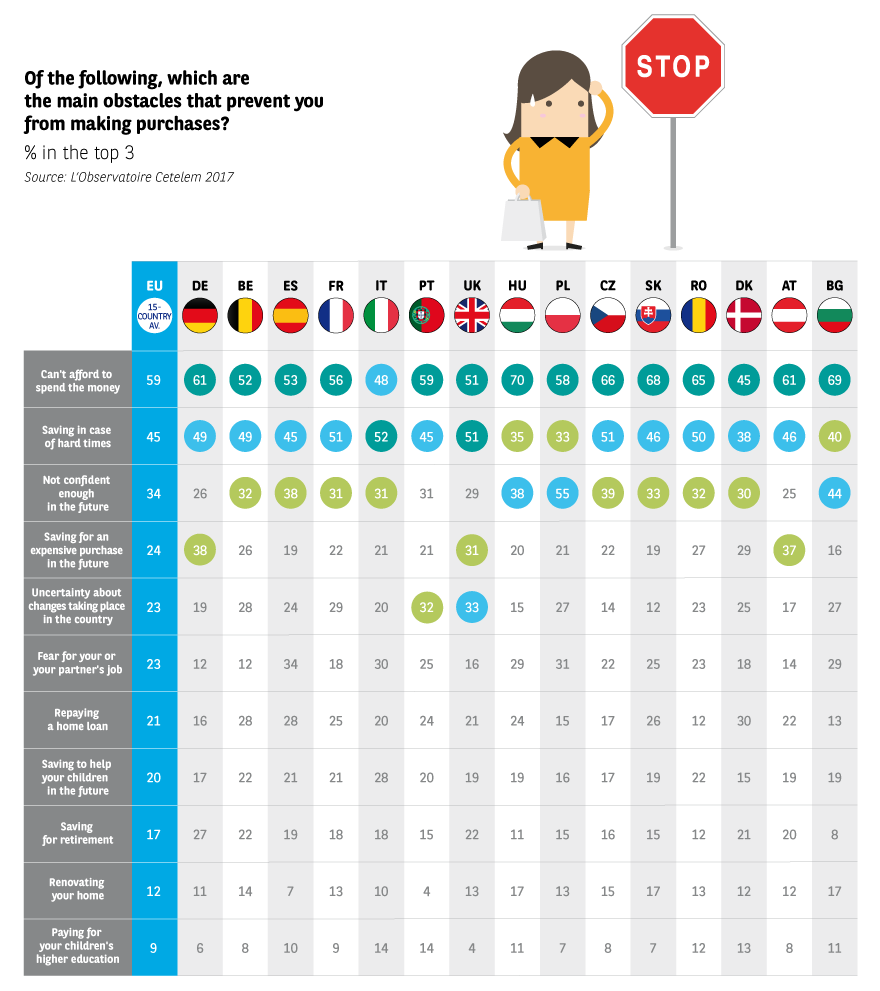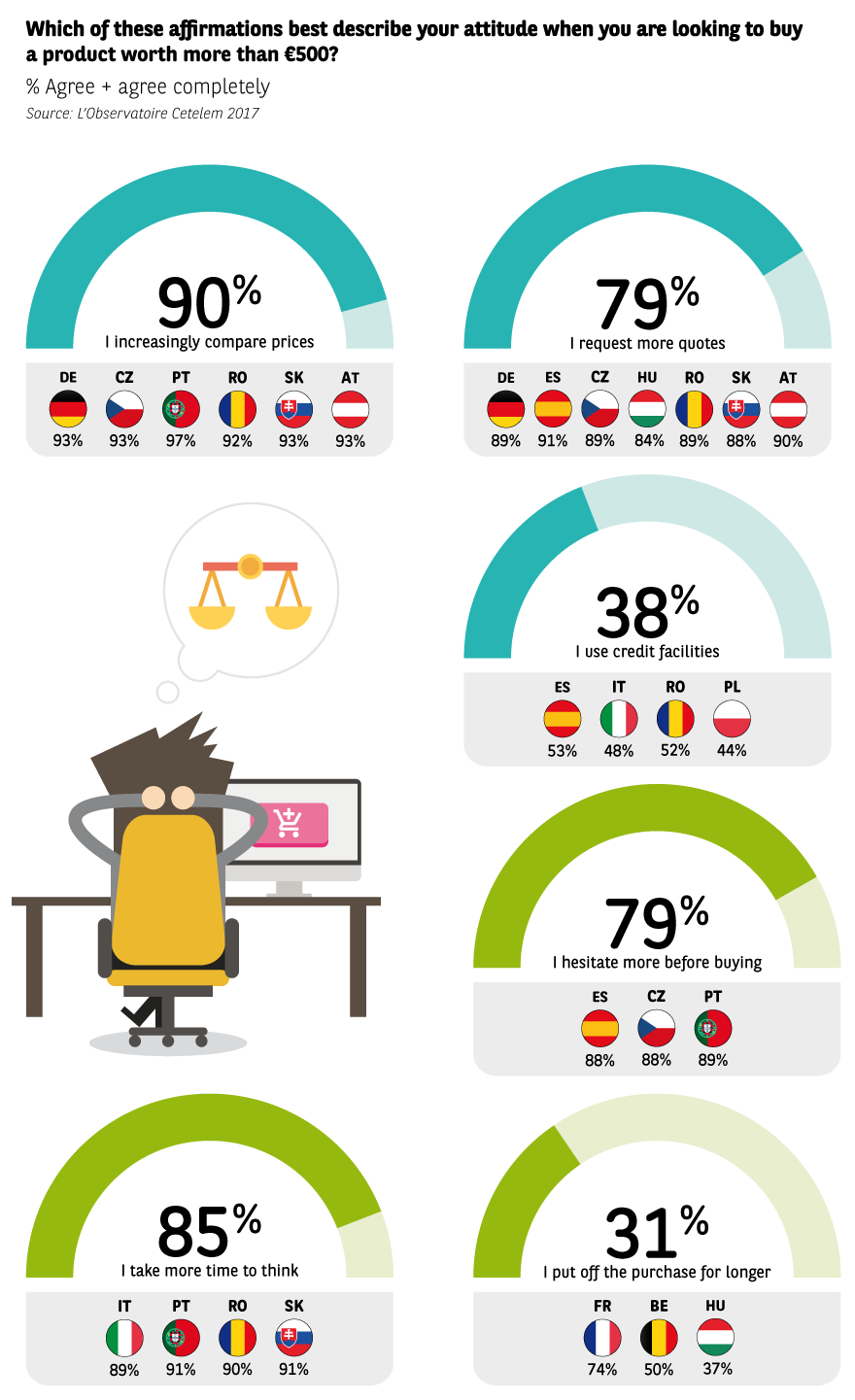A lack of confidence that is affecting consumption


Uncertainty and scandals
If you ask companies, particularly in the financial sector, which word they most revile, “uncertainty” is sure to be at the top of the heap. And yet, this is clearly a feeling that has been gaining ground for many years now, thanks to a succession of surprises, scandals and mysteries. With the subprime crisis and, less recently, the Enron affair still fresh in people’s minds, the Volkswagen scandal, not to mention those involving other car makers, has cast doubt over the honesty of a company in which people previously placed a great deal of confidence. Brexit and the rise of Donald Trump have only ramped up the sense that nothing is impossible any more.
Consumers curb their enthusiasm
As highlighted in previous editions of L’Observatoire Cetelem de la Consommation, the behaviour of European consumers has altered significantly over the last few years in an overbearing context of economic gloom. This confidence-focused 2017 edition only confirms this observation.
The concern expressed by Europeans is reflected by the decisions they make in managing their budget. While 59% declare that a lack of resources causes them to spend more conservatively, 45% declare that they prefer to save in case they fall on hard times. The lack of confidence in the future and the way in which the situation in their country is evolving are, for many Europeans, obstacles that stand in the way of spending.
Consumer thoughts
« I’m not unhappy! I make a reasonable living, €2,000 a month, and I have savings. I don’t deprive myself, but I have to be careful and find good deals. »
So, yes to spending – only 31% of Europeans find that they are increasingly putting off purchases – but not without care. Now more than ever, people are careful not to go over the top.
90% of those surveyed compare prices before making a purchase. In this respect, the Portuguese are head and shoulders above the rest (97%), while the Danes almost seem frivolous in comparison (73%). The result for France is slightly above average (92%).
In 2016, consumption continued to involve a great deal of thought. 85% of Europeans think for longer before making a purchase. Once again, the Portuguese, along with the Slovaks, are the most cautious (91%). And again the Danes express a degree of impulsiveness (67%).
The increasing number of quotes requested by Europeans before they make a purchase also illustrates the prudence of consumers today (79%). And a contrast worth noting is the fact that the Portuguese and Danes do not stand out in this respect. Spain, Austria, Germany, the Czech Republic, Romania and Slovakia all post a score of around 90% when it comes to comparing the prices of suppliers, while the Poles and Belgians stand slightly apart from this trend (around 60%).
Ultimately, hesitation reigns when the time comes to sign on the dotted line. 79% of Europeans hesitate more and more before making a purchase. Along with the Slovaks, inhabitants of the Iberian Peninsula top this particular ranking (Portugal: 89%, Spain and Slovakia: 88%), while the Danes are once more the least indecisive.


